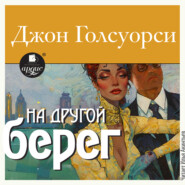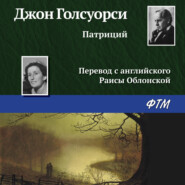По всем вопросам обращайтесь на: info@litportal.ru
(©) 2003-2024.
✖
Beyond
Настройки чтения
Размер шрифта
Высота строк
Поля
Flying back across the yard, Gyp thought: “‘She rode beautiful!’ How jolly! I’m glad he’s got my horse.”
XXI
Still glowing from her morning in the saddle, Gyp started out next day at noon on her visit to the “old scoundrel’s” cottage. It was one of those lingering mellow mornings of late September, when the air, just warmed through, lifts off the stubbles, and the hedgerows are not yet dried of dew. The short cut led across two fields, a narrow strip of village common, where linen was drying on gorse bushes coming into bloom, and one field beyond; she met no one. Crossing the road, she passed into the cottage-garden, where sunflowers and Michaelmas daisies in great profusion were tangled along the low red-brick garden-walls, under some poplar trees yellow-flecked already. A single empty chair, with a book turned face downward, stood outside an open window. Smoke wreathing from one chimney was the only sign of life. But, standing undecided before the half-open door, Gyp was conscious, as it were, of too much stillness, of something unnatural about the silence. She was just raising her hand to knock when she heard the sound of smothered sobbing. Peeping through the window, she could just see a woman dressed in green, evidently Mrs. Wagge, seated at a table, crying into her handkerchief. At that very moment, too, a low moaning came from the room above. Gyp recoiled; then, making up her mind, she went in and knocked at the room where the woman in green was sitting. After fully half a minute, it was opened, and Mrs. Wagge stood there. The nose and eyes and cheeks of that thinnish, acid face were red, and in her green dress, and with her greenish hair (for it was going grey and she put on it a yellow lotion smelling of cantharides), she seemed to Gyp just like one of those green apples that turn reddish so unnaturally in the sun. She had rubbed over her face, which shone in streaks, and her handkerchief was still crumpled in her hand. It was horrible to come, so fresh and glowing, into the presence of this poor woman, evidently in bitter sorrow. And a desperate desire came over Gyp to fly. It seemed dreadful for anyone connected with him who had caused this trouble to be coming here at all. But she said as softly as she could:
“Mrs. Wagge? Please forgive me – but is there any news? I am – It was I who got Daphne down here.”
The woman before her was evidently being torn this way and that, but at last she answered, with a sniff:
“It – it – was born this morning – dead.” Gyp gasped. To have gone through it all for that! Every bit of mother-feeling in her rebelled and sorrowed; but her reason said: Better so! Much better! And she murmured:
“How is she?”
Mrs. Wagge answered, with profound dejection:
“Bad – very bad. I don’t know I’m sure what to say – my feelings are all anyhow, and that’s the truth. It’s so dreadfully upsetting altogether.”
“Is my nurse with her?”
“Yes; she’s there. She’s a very headstrong woman, but capable, I don’t deny. Daisy’s very weak. Oh, it IS upsetting! And now I suppose there’ll have to be a burial. There really seems no end to it. And all because of – of that man.” And Mrs. Wagge turned away again to cry into her handkerchief.
Feeling she could never say or do the right thing to the poor lady, Gyp stole out. At the bottom of the stairs, she hesitated whether to go up or no. At last, she mounted softly. It must be in the front room that the bereaved girl was lying – the girl who, but a year ago, had debated with such naive self-importance whether or not it was her duty to take a lover. Gyp summoned courage to tap gently. The economic agent opened the door an inch, but, seeing who it was, slipped her robust and handsome person through into the corridor.
“You, my dear!” she said in a whisper. “That’s nice!”
“How is she?”
“Fairly well – considering. You know about it?”
“Yes; can I see her?”
“I hardly think so. I can’t make her out. She’s got no spirit, not an ounce. She doesn’t want to get well, I believe. It’s the man, I expect.” And, looking at Gyp with her fine blue eyes, she asked: “Is that it? Is he tired of her?”
Gyp met her gaze better than she had believed possible.
“Yes, nurse.”
The economic agent swept her up and down. “It’s a pleasure to look at you. You’ve got quite a colour, for you. After all, I believe it MIGHT do her good to see you. Come in!”
Gyp passed in behind her, and stood gazing, not daring to step forward. What a white face, with eyes closed, with fair hair still damp on the forehead, with one white hand lying on the sheet above her heart! What a frail madonna of the sugar-plums! On the whole of that bed the only colour seemed the gold hoop round the wedding-finger.
The economic agent said very quietly:
“Look, my dear; I’ve brought you a nice visitor.”
Daphne Wing’s eyes and lips opened and closed again. And the awful thought went through Gyp: ‘Poor thing! She thought it was going to be him, and it’s only me!’ Then the white lips said:
“Oh, Mrs. Fiorsen, it’s you – it is kind of you!” And the eyes opened again, but very little, and differently.
The economic agent slipped away. Gyp sat down by the bed and timidly touched the hand.
Daphne Wing looked at her, and two tears slowly ran down her cheeks.
“It’s over,” she said just audibly, “and there’s nothing now – it was dead, you know. I don’t want to live. Oh, Mrs. Fiorsen, why can’t they let me die, too?”
Gyp bent over and kissed the hand, unable to bear the sight of those two slowly rolling tears. Daphne Wing went on:
“You ARE good to me. I wish my poor little baby hadn’t – ”
Gyp, knowing her own tears were wetting that hand, raised herself and managed to get out the words:
“Bear up! Think of your work!”
“Dancing! Ho!” She gave the least laugh ever heard. “It seems so long ago.”
“Yes; but now it’ll all come back to you again, better than ever.”
Daphne Wing answered by a feeble sigh.
There was silence. Gyp thought: ‘She’s falling asleep.’
With eyes and mouth closed like that, and all alabaster white, the face was perfect, purged of its little commonnesses. Strange freak that this white flower of a face could ever have been produced by Mr. and Mrs. Wagge!
Daphne Wing opened her eyes and said:
“Oh! Mrs. Fiorsen, I feel so weak. And I feel much more lonely now. There’s nothing anywhere.”
Gyp got up; she felt herself being carried into the mood of the girl’s heart, and was afraid it would be seen. Daphne Wing went on:
“Do you know, when nurse said she’d brought a visitor, I thought it was him; but I’m glad now. If he had looked at me like he did – I couldn’t have borne it.”
Gyp bent down and put her lips to the damp forehead. Faint, very faint, there was still the scent of orange-blossom.
When she was once more in the garden, she hurried away; but instead of crossing the fields again, turned past the side of the cottage into the coppice behind. And, sitting down on a log, her hands pressed to her cheeks and her elbows to her breast, she stared at the sunlit bracken and the flies chasing each other over it. Love! Was it always something hateful and tragic that spoiled lives? Criss-cross! One darting on another, taking her almost before she knew she was seized, then darting away and leaving her wanting to be seized again. Or darting on her, who, when seized, was fatal to the darter, yet had never wanted to be seized. Or darting one on the other for a moment, then both breaking away too soon. Did never two dart at each other, seize, and cling, and ever after be one? Love! It had spoiled her father’s life, and Daphne Wing’s; never came when it was wanted; always came when it was not. Malevolent wanderer, alighting here, there; tiring of the spirit before it tired of the body; or of the body before it tired of the spirit. Better to have nothing to do with it – far better! If one never loved, one would never feel lonely – like that poor girl. And yet! No – there was no “and yet.” Who that was free would wish to become a slave? A slave – like Daphne Wing! A slave – like her own husband to his want of a wife who did not love him. A slave like her father had been – still was, to a memory. And watching the sunlight on the bracken, Gyp thought: ‘Love! Keep far from me. I don’t want you. I shall never want you!’
Every morning that week she made her way to the cottage, and every morning had to pass through the hands of Mrs. Wagge. The good lady had got over the upsetting fact that Gyp was the wife of that villain, and had taken a fancy to her, confiding to the economic agent, who confided it to Gyp, that she was “very distangey – and such pretty eyes, quite Italian.” She was one of those numberless persons whose passion for distinction was just a little too much for their passionate propriety. It was that worship of distinction which had caused her to have her young daughter’s talent for dancing fostered. Who knew to what it might lead in these days? At great length she explained to Gyp the infinite care with which she had always “brought Daisy up like a lady – and now this is the result.” And she would look piercingly at Gyp’s hair or ears, at her hands or her instep, to see how it was done. The burial worried her dreadfully. “I’m using the name of Daisy Wing; she was christened ‘Daisy’ and the Wing’s professional, so that takes them both in, and it’s quite the truth. But I don’t think anyone would connect it, would they? About the father’s name, do you think I might say the late Mr. Joseph Wing, this once? You see, it never was alive, and I must put something if they’re not to guess the truth, and that I couldn’t bear; Mr. Wagge would be so distressed. It’s in his own line, you see. Oh, it is upsetting!”
Gyp murmured desperately:
“Oh! yes, anything.”
Though the girl was so deathly white and spiritless, it soon became clear that she was going to pull through. With each day, a little more colour and a little more commonness came back to her. And Gyp felt instinctively that she would, in the end, return to Fulham purged of her infatuation, a little harder, perhaps a little deeper.
Late one afternoon toward the end of her week at Mildenham, Gyp wandered again into the coppice, and sat down on that same log. An hour before sunset, the light shone level on the yellowing leaves all round her; a startled rabbit pelted out of the bracken and pelted back again, and, from the far edge of the little wood, a jay cackled harshly, shifting its perch from tree to tree. Gyp thought of her baby, and of that which would have been its half-brother; and now that she was so near having to go back to Fiorsen, she knew that she had not been wise to come here. To have been in contact with the girl, to have touched, as it were, that trouble, had made the thought of life with him less tolerable even than it was before. Only the longing to see her baby made return seem possible. Ah, well – she would get used to it all again! But the anticipation of his eyes fixed on her, then sliding away from the meeting with her eyes, of all – of all that would begin again, suddenly made her shiver. She was very near to loathing at that moment. He, the father of her baby! The thought seemed ridiculous and strange. That little creature seemed to bind him to her no more than if it were the offspring of some chance encounter, some pursuit of nymph by faun. No! It was hers alone. And a sudden feverish longing to get back to it overpowered all other thought. This longing grew in her so all night that at breakfast she told her father. Swallowing down whatever his feeling may have been, he said:
“Very well, my child; I’ll come up with you.”
Putting her into the cab in London, he asked:

















